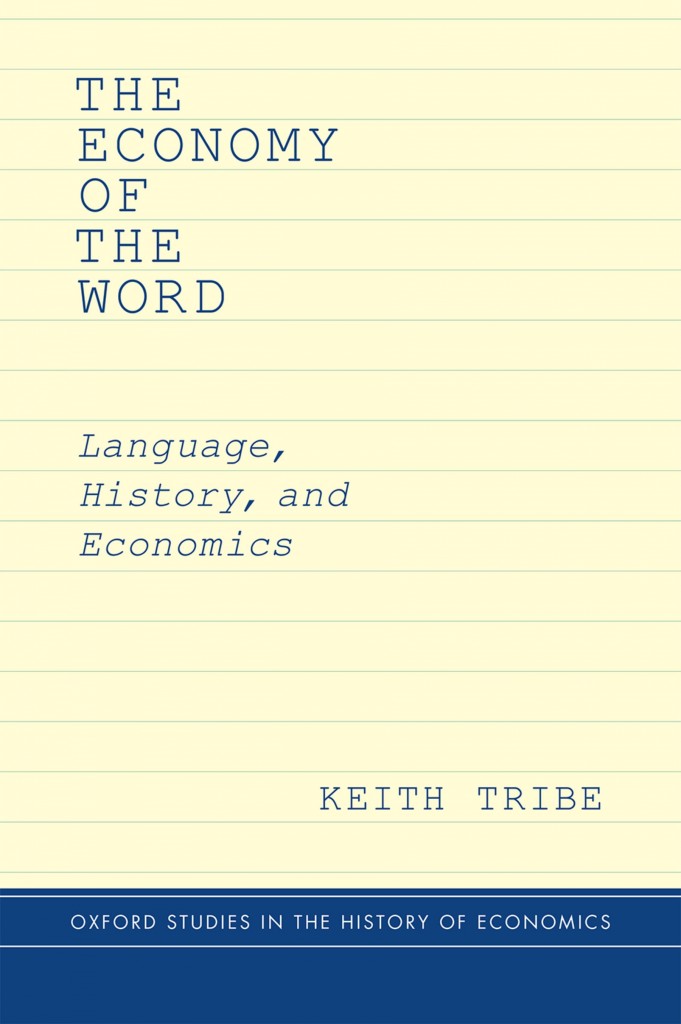Some years ago, pondering the way my Birmingham lectures on the history of economics were developing, I remarked to Istvan Hont that I seemed only to talk about text and biography. “What else is there?” he responded. I have long taken the position that texts are so many articulations of a language, that we therefore need to study the language, not the person using it; and so for a long time I avoided biography as a source of an intentionalist fallacy. Persons were simply historical users of a language with which they composed written texts, and so I eschewed biography as associated with an intentionalism that treated persons as deliberate creators of the language they used. The persons were the medium for the language, so that the prospects for meanings that they articulated were given in the language, not the person. Hence there was no point in seeking for the meaning of a text to ask ourselves what the intentions of its writer were. Instead, I took the view that language used them; that individuals “make sense” by using means and materials that pre- and post-exist them. The writer is a reader, a bricoleur, making sense with what is available. To presume that “meaning” was deliberately constructed by an individual, so that we needed to understand the agent’s intention to understand the meaning of what that agent said and wrote, was a fallacy; as Terence Hutchison pointed out in a rather different context, like asking the cuckoo in a cuckoo clock what the time was:
“It is as though one was to sketch out the plans for, or actually construct (as one could actually construct a mechanical model of a community in static equilibrium) some piece of mechanism, say a cuckoo clock, and then ask the cuckoo whether it was because it had perfect expectation of the time that it appeared exactly at each hour.” (The Significance and Basic Postulates of Economic Theory, London 1938 p. 96)
Hence my puzzlement about how I was now teaching; but Istvan’s point was not about intentionality, about access to meaning through the interrogation of biography. Rather, that we use biography to place language’s speakers as speakers occupying a particular context. For what “context” is has itself to be constructed with regard to the problem at hand. It is rarely immediately obvious what the relevant “context” is, which facet of the speaker’s situation is to be mobilised as aiding explanation of the language that speaker uses. We could say, therefore, that “context” is itself something that has to be constructed, or at the very least assembled.
But this principle brings with it an empirical imperative: that “contextualism” implies a rigorous empiricism in seeking out material that might, or might not, provide us with insight into the motivations of a speaker. This is not a matter of “psychology”; more something allied to legal argument, in which evidence is adduced and weighed in order to determine the intentions of those committing actionable offences. And so if we take “contextualism” seriously, it leads us into the realms of what we might call “empirical historiography”, in which the generalising arguments of philosophy or sociology have no purchase.
https://estudiosdelaeconomia.com/2018/10/02/the-digression-is-the-story-or-how-to-read-economics-and-weber-an-interview-with-keith-tribe/

